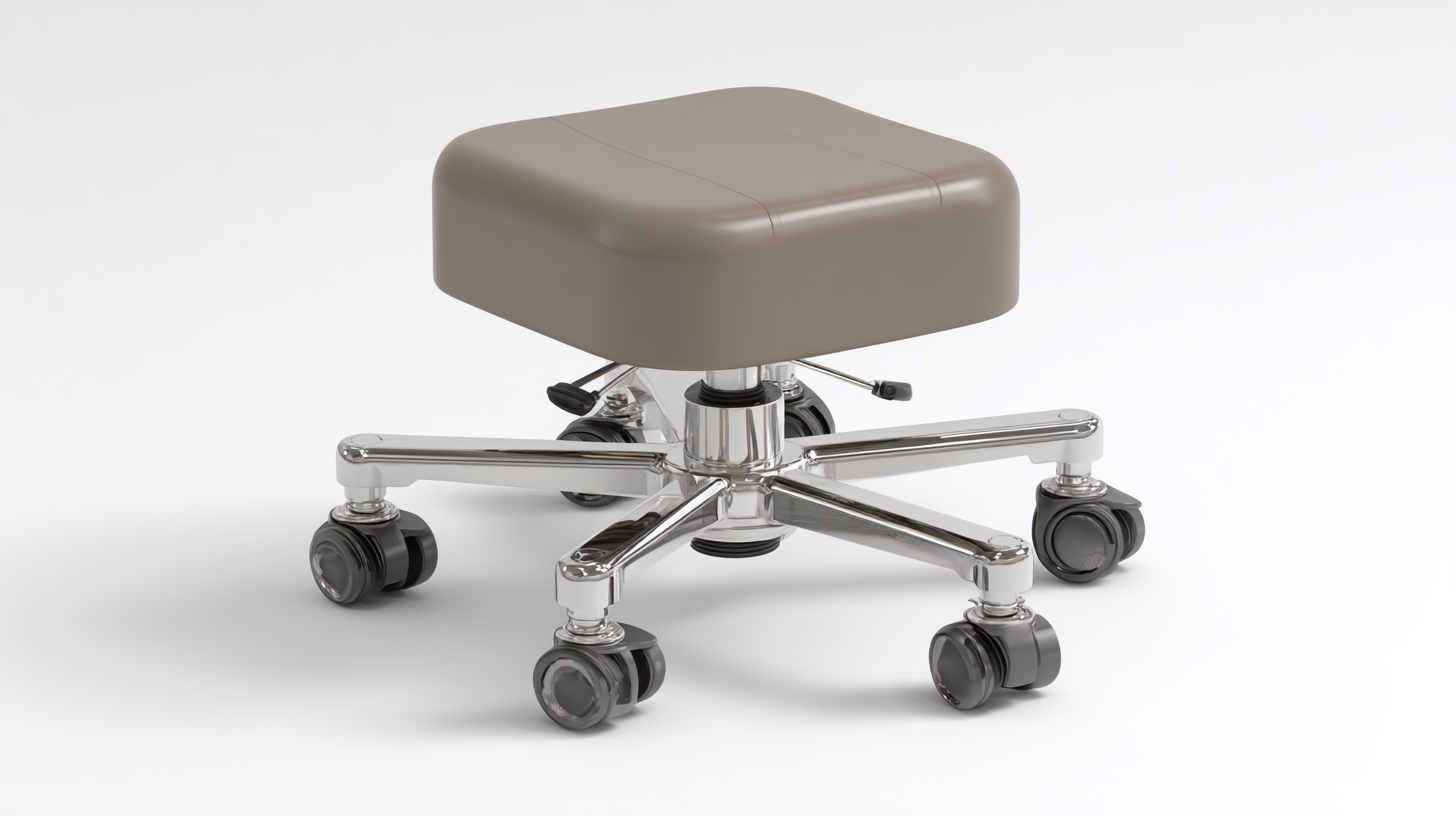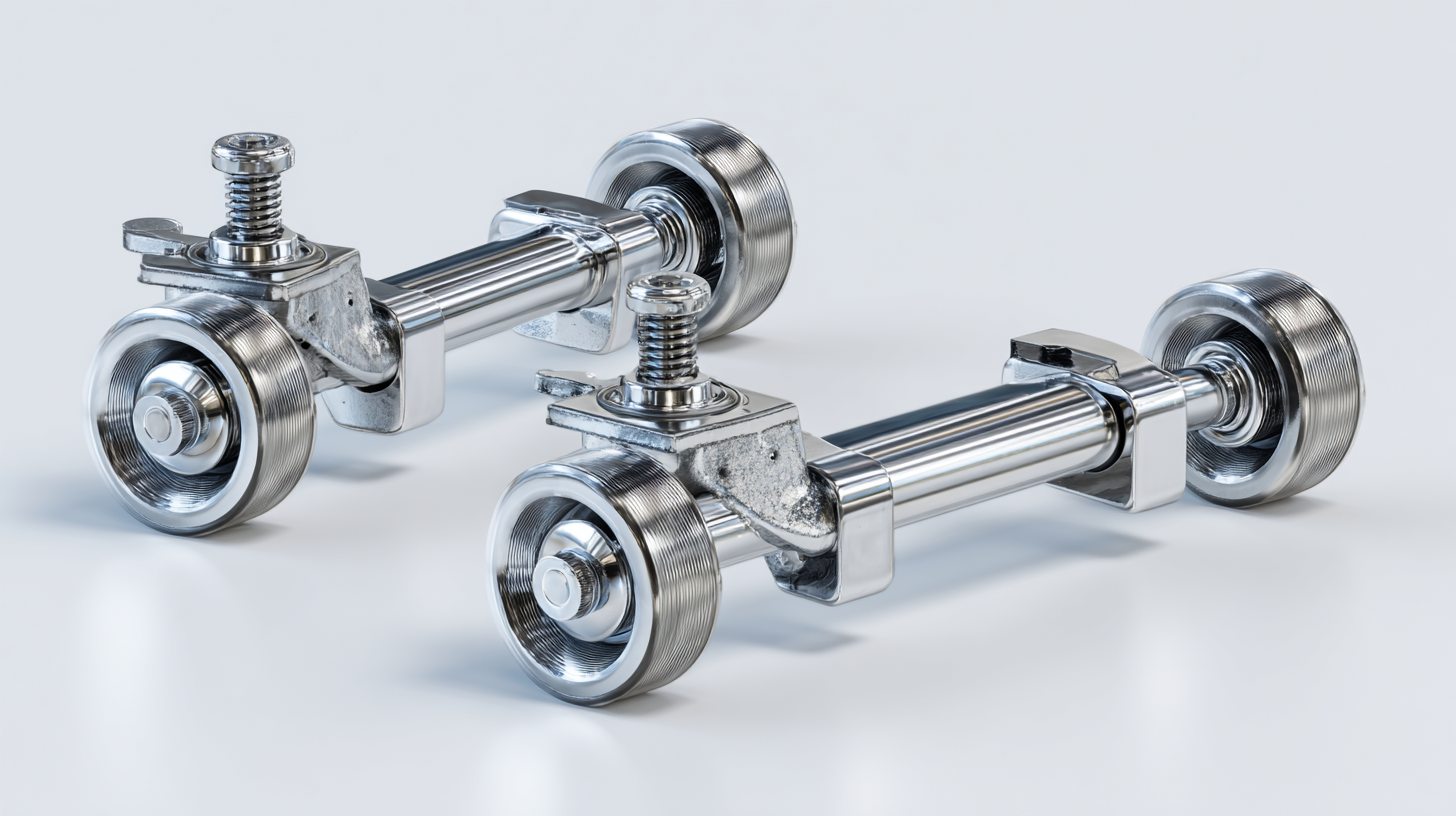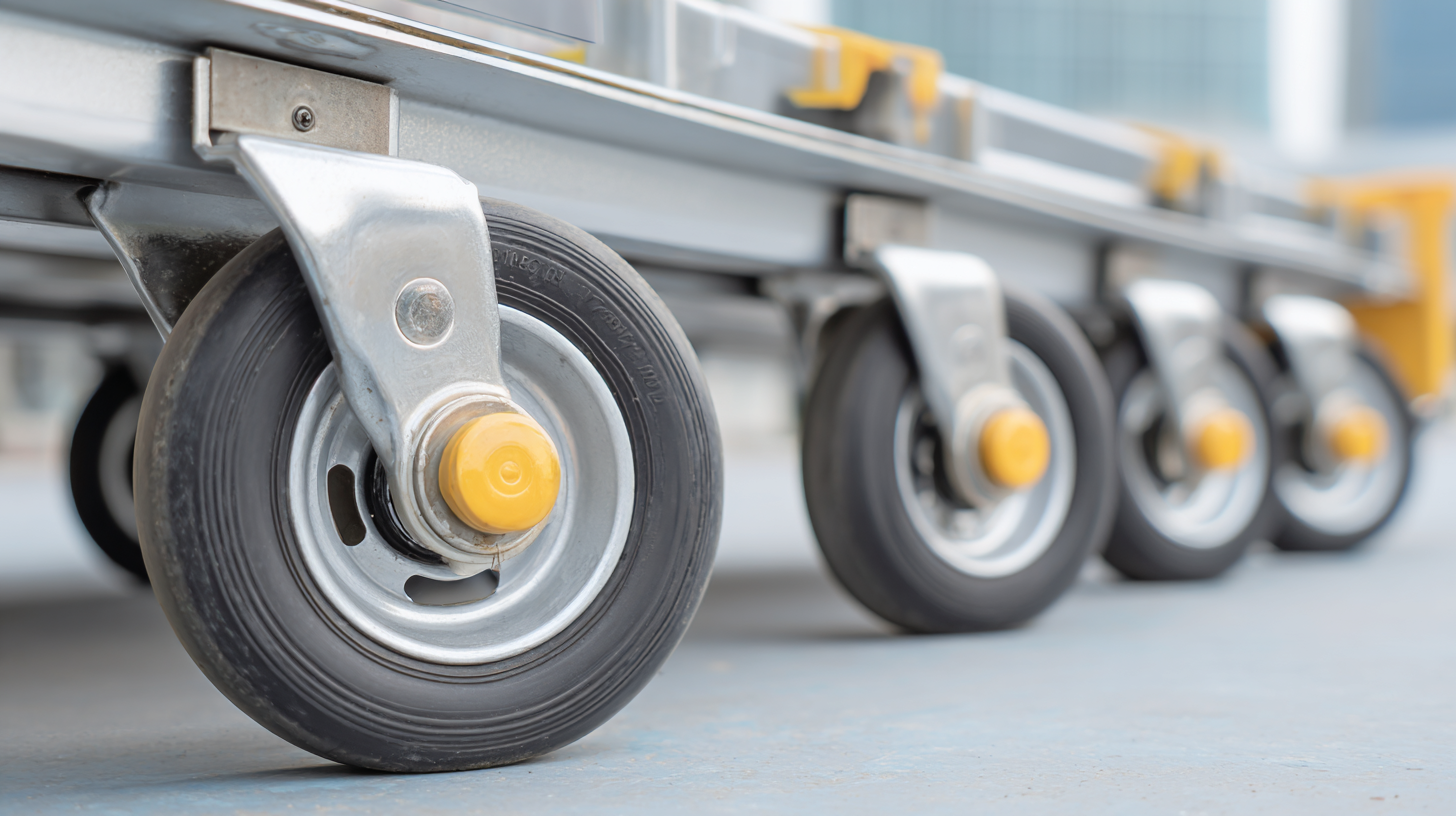
Solutions for Choosing the Best Furniture Castor Wheels for Your Global Procurement Needs
In today's rapidly evolving global marketplace, selecting the right Furniture Castor Wheels is paramount for optimizing efficiency and functionality in both commercial and residential settings. According to a recent report by the Global Market Insights research firm, the furniture accessories market, which includes castor wheels, is projected to exceed $12 billion by 2026, driven by increasing demand for mobility and flexibility in furniture design. As procurement departments across the globe seek to enhance their supply chains and streamline operations, understanding the alternatives available in castor wheel technology becomes crucial. By examining factors such as load capacity, wheel material, and swivel design, businesses can find solutions that not only meet their specific needs but also contribute to sustainability and cost-effectiveness. The exploration of various alternatives in Furniture Castor Wheels is essential for enhancing product versatility while ensuring compliance with industry standards.

Understanding the Importance of Certification in Furniture Castor Wheels Import and Export
When engaging in global procurement of furniture castor wheels, understanding the importance of certification cannot be overstated. Certification ensures that the products meet specific quality and safety standards, which is crucial for compliance with international regulations. According to a recent report by the Global Castor Wheel Association (GCWA), more than 70% of imports are subjected to rigorous quality control processes, highlighting the necessity for certified suppliers. This not only protects your business from potential liabilities but also enhances brand reputation in the market.
To ensure you select the right certified suppliers, consider the following tips: First, verify the certification standards, such as ISO or ASTM, that are relevant to your industry. These certifications guarantee that the castor wheels can withstand required load capacities and are manufactured using safe materials. Second, explore supplier audits and inspection reports that showcase compliance with industry standards. Regular monitoring of supplier performance can also mitigate risks associated with non-compliance.
Moreover, keeping abreast of emerging certification trends can provide a competitive edge. For instance, recent shifts towards sustainability in manufacturing are leading to new eco-certifications that highlight environmentally friendly practices. Staying informed about these trends will not only enhance your procurement strategy but also align your business with growing consumer expectations for sustainable products.
Essential Standards for International Furniture Castor Wheels Compliance
When selecting the best furniture castor wheels, adherence to essential international standards is crucial for ensuring safety and performance. A recent random inspection of luggage products revealed that 1 out of 10 tested samples failed to meet national standards, highlighting the importance of compliance in manufacturing castor wheels as well. As the global furniture castor wheel market is expected to grow from $16.61 billion in 2024 to $17.68 billion in 2025, reaching $29.24 billion by 2033, manufacturers must prioritize meeting regulatory requirements to maintain market credibility and consumer trust.

Moreover, the increasing demand for high-quality children's furniture, including learning chairs, emphasizes the significance of robust safety standards in the design and production of castor wheels. Properly designed wheels can support not just mobility but also ergonomic features critical for healthy posture among children. As the furniture sector continues to evolve, embracing innovative and compliant solutions will be key in thriving within this competitive landscape, allowing companies to cater effectively to varying global procurement needs.
Key Factors to Consider When Selecting Certified Castor Wheels
When selecting certified castor wheels for your global procurement needs, it's crucial to consider several key factors that ensure optimal functionality and durability. One primary factor is the load capacity of the castor wheels, which directly impacts their performance in various environments. According to industry data, the average weight capacity of high-quality castor wheels ranges from 50 to over 1,500 pounds, making it vital to choose wheels that can support the intended application efficiently.
Another important aspect is the wheel material. Different materials provide varying levels of resistance to wear, temperature, and environmental conditions. For instance, rubber wheels are known for their shock-absorption properties and are ideal for indoor use, while plastic wheels are often lighter and more suitable for outdoor applications. Research indicates that using the appropriate material can extend the life of the wheels by up to 30%, effectively reducing overall procurement costs in the long run.
Additionally, the type of swivel and brake mechanism can greatly enhance maneuverability and safety. Products featuring precision ball bearings offer smoother movement, while reliable brake systems ensure stability when stationary. Industry surveys suggest that companies prioritizing these features report a significant reduction in maintenance issues and increased productivity, making them vital considerations in the procurement process.
Navigating Global Regulations for Furniture Castor Wheels Procurement
Navigating global regulations while procuring furniture castor wheels can be a complex endeavor, particularly due to the evolving landscape of trade and environmental laws. Recent studies indicate that stringent regulations are reshaping how products in this sector are designed and manufactured. For instance, the implementation of the EUDR (EU Regulation on Deforestation-Free Products) is set to impact approximately 60% of global furniture imports, compelling manufacturers to ensure traceability and compliance with environmental standards. This underscores the need for procurement teams to stay informed about local and international regulations that could affect supply chains.
Moreover, the growing emphasis on ESG (Environmental, Social, and Governance) compliance further complicates procurement processes. A survey conducted by Procurement Leaders found that 76% of procurement professionals feel under pressure to enhance their ESG strategies, with many citing a lack of clarity in compliance requirements as a significant barrier. As companies strive to align their procurement practices with sustainable development goals, navigating the complexities of regulatory landscapes becomes critical. Understanding the intricacies of global standards and regulations related to castor wheels can not only mitigate risks but also enhance a company's reputation and market position in the highly competitive furniture industry.
Strategies for Ensuring Quality and Safety in Furniture Castor Wheel Sourcing
When it comes to sourcing furniture castor wheels, ensuring quality and safety should be your top priority. The right castor wheels can greatly enhance the functionality and durability of your furniture, making it essential to choose the best options available. One effective strategy is to conduct thorough research on various manufacturers. Verify their industry certifications, compliance with safety standards, and customer reviews. This information can provide valuable insights into the reliability and quality of their products.
Tip: Create a checklist of quality standards to use when evaluating castor wheels. This might include material durability, weight-bearing capacity, and wheel design. Being systematic can help mitigate risks associated with poor-quality wheels that may compromise both safety and performance.
Additionally, considering the specific needs of your procurement can greatly influence your selection. For instance, if your furniture is intended for use in sensitive areas, opting for wheels made from non-marking materials can prevent damage to floors. Tip: Prioritize suppliers that offer customized solutions to ensure you get the right wheels tailored to your needs, further enhancing the overall safety and quality of your furniture products.

